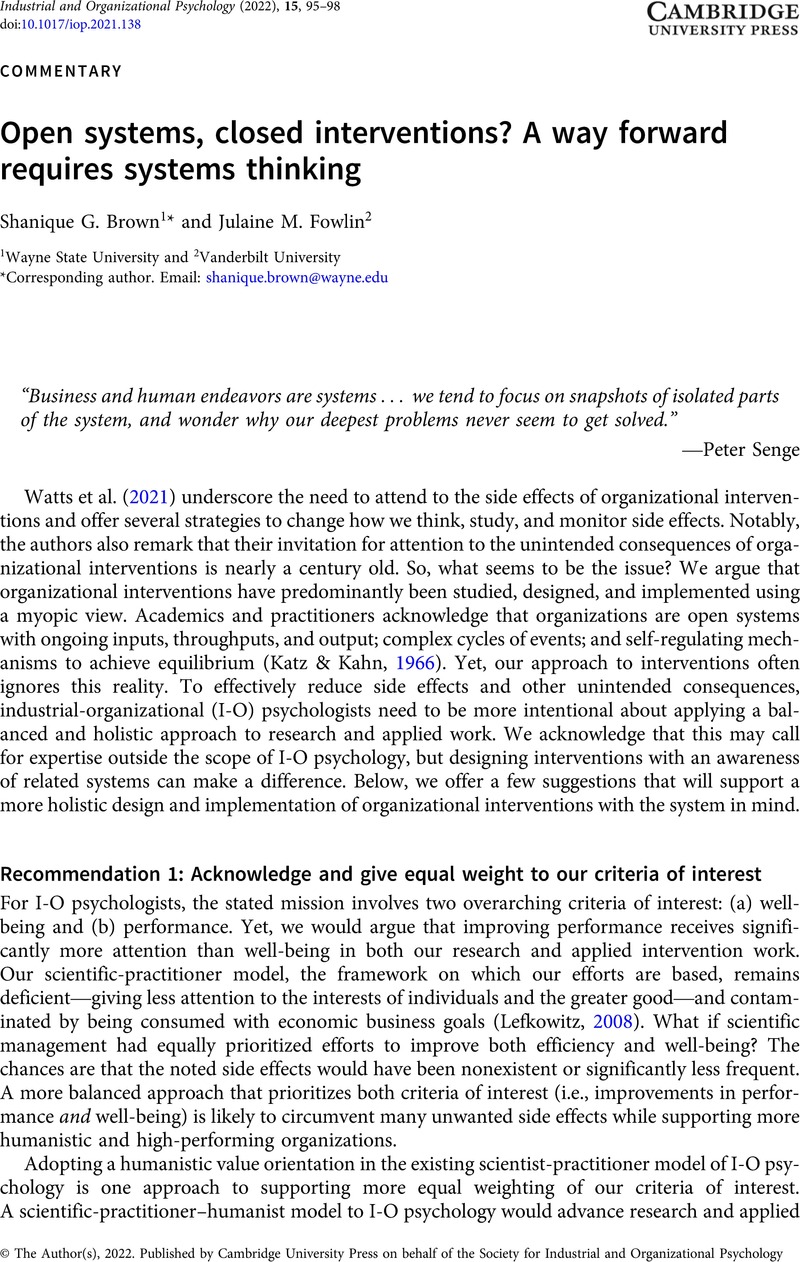No CrossRef data available.
Article contents
Open systems, closed interventions? A way forward requires systems thinking
Published online by Cambridge University Press: 29 March 2022
Abstract
An abstract is not available for this content so a preview has been provided. Please use the Get access link above for information on how to access this content.

- Type
- Commentaries
- Information
- Copyright
- © The Author(s), 2022. Published by Cambridge University Press on behalf of the Society for Industrial and Organizational Psychology
References
Bell, S. T., Fisher, D. M., Brown, S. G., & Mann, K. E. (2018). An approach for conducting actionable research with extreme teams. Journal of Management, 44(7), 2740–2765.CrossRefGoogle Scholar
Garvin, D. (1993) Building a learning organization. Harvard Business Review, July/August. https://hbr.org/1993/07/building-a-learning-organization
Google Scholar
Johns, G. (2006). The essential impact of context on organizational behavior. Academy of Management Review, 31(2), 386–408.CrossRefGoogle Scholar
Klein, J. T., (2010). The taxonomy of interdisciplinarity. In Frodeman, R., Klein, J. T., & Mitcham, C. (Eds.), Oxford handbook of interdisciplinarity (pp. 15–30). Oxford University Press.Google Scholar
Lefkowitz, J. (2008). To prosper, organizational psychology should expand the values of organizational psychology to match the quality of its ethics. Journal of Organizational Behavior, 29(4), 439–453.CrossRefGoogle Scholar
Lefkowitz, J. (2013). Values and ethics of a changing I-O psychology: A call to (further) action. In Olson-Buchanan, J., Bryan, L. K., & Thompson, L. F. (Eds.), Using industrial-organizational psychology for the greater good: Helping those who help others (pp. 13–42). Routledge.Google Scholar
Sedlacko, M., Martinuzzi, A., Røpke, I., Videira, N., & Antunes, P. (2014). Participatory systems mapping for sustainable consumption: Discussion of a method promoting systemic insights. Ecological Economics, 106, 33–43.CrossRefGoogle Scholar
Senge, P. M., Lichtenstein, B. B., Kaeufer, K., Bradbury, H., & Carroll, J. S. (2007). Collaborating for systemic change. MIT Sloan Management Review, 48(2), 44–53.Google Scholar
Watts, L., Gray, B., & Medeiros, K. (2021). Side effects associated with organizational interventions: A perspective. Industrial and Organizational Psychology: Perspectives on Science and Practice, 15(1), 76–94.Google Scholar


